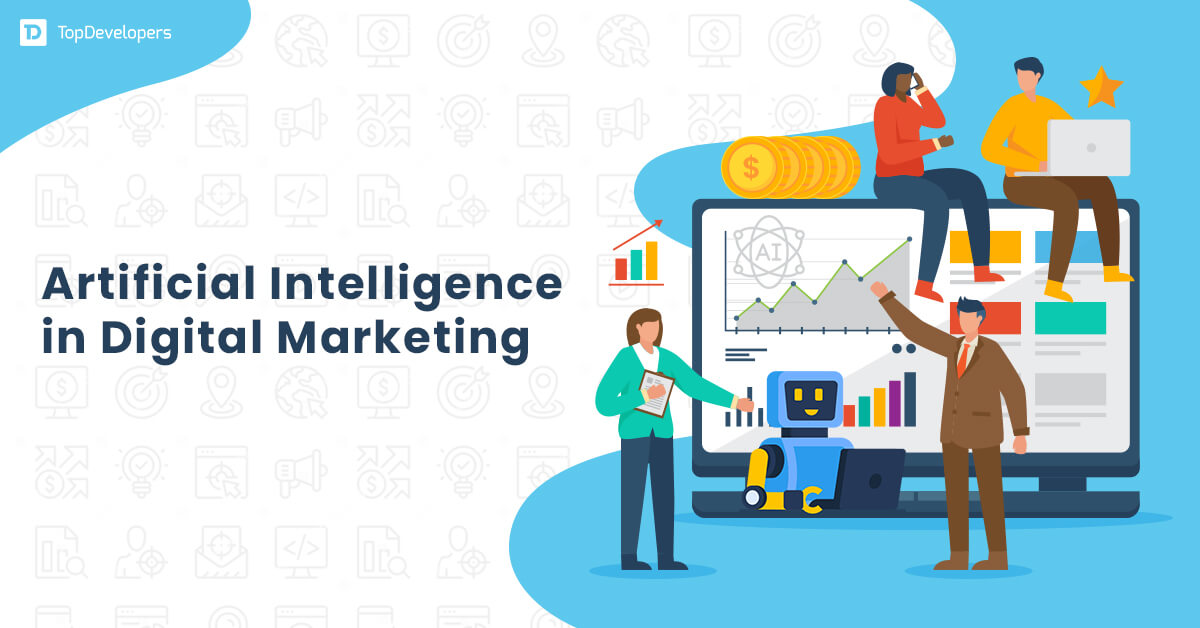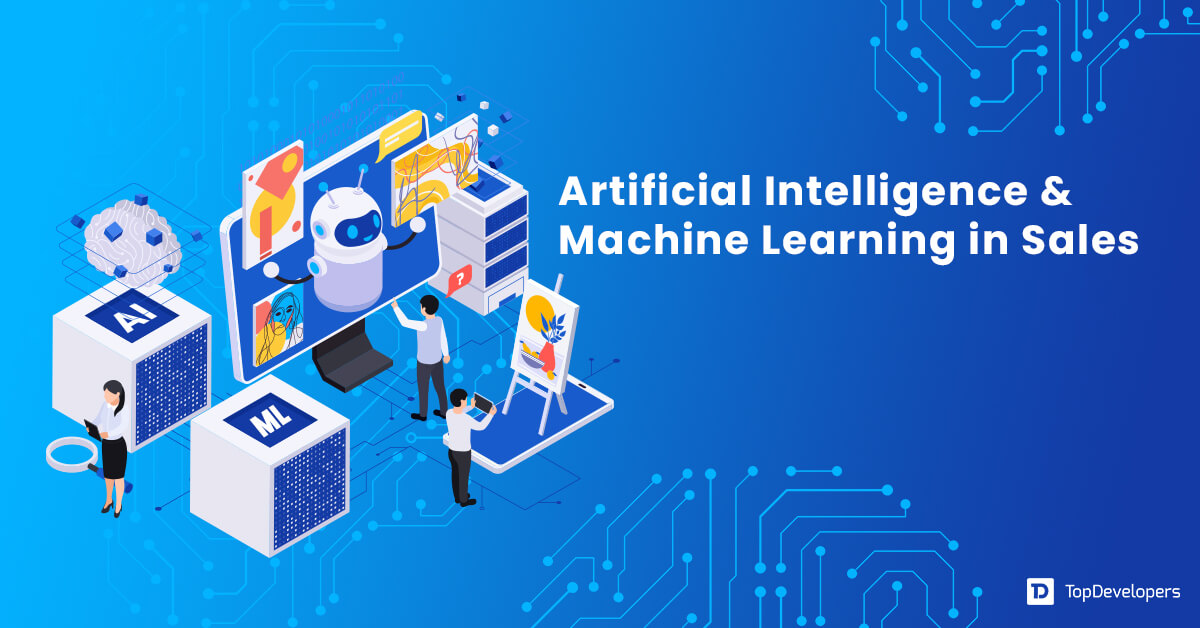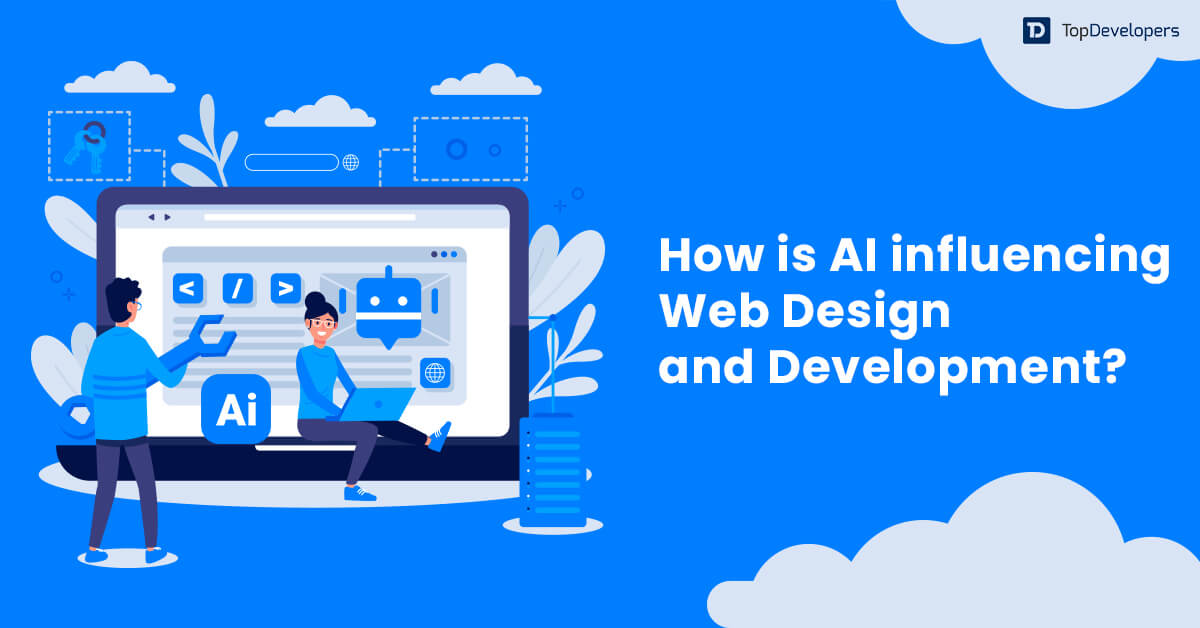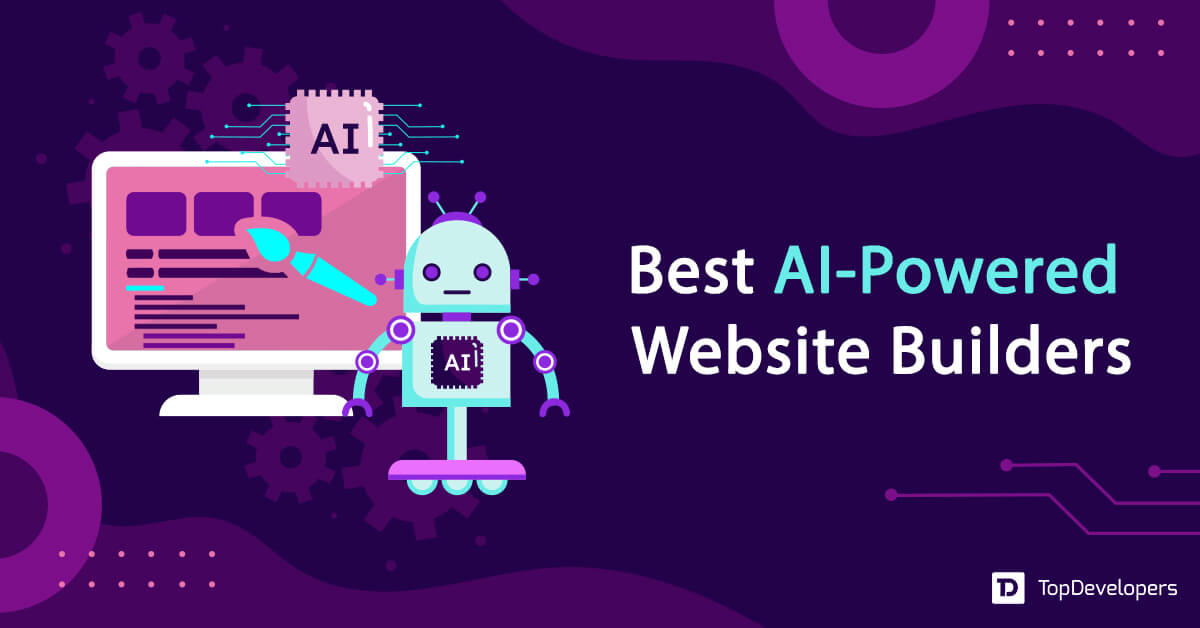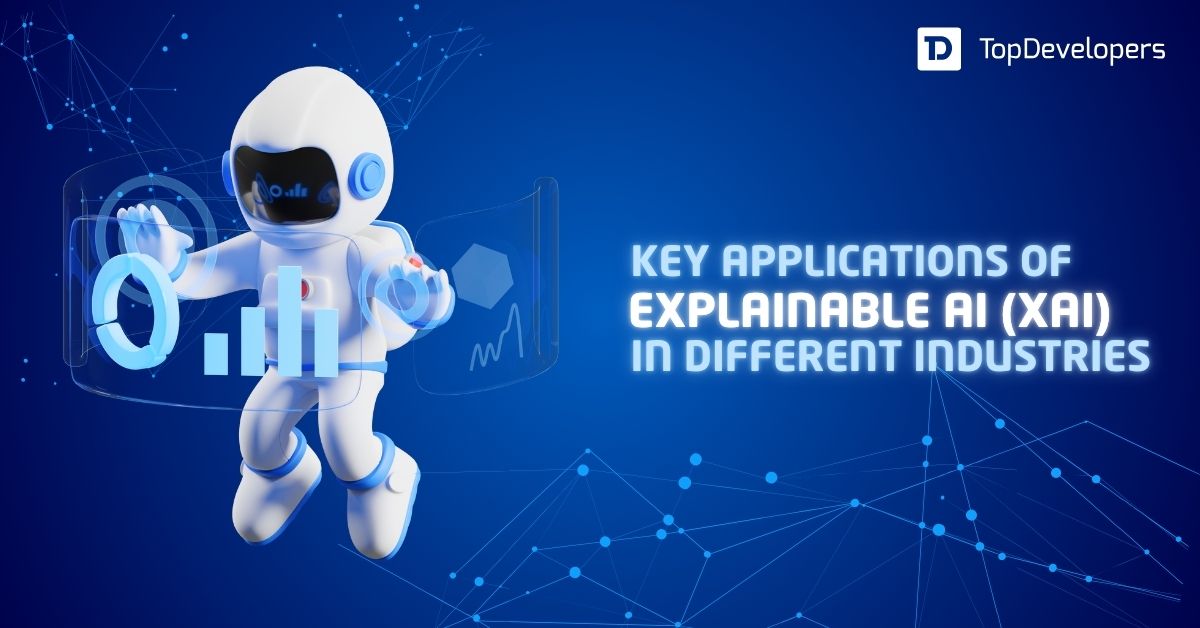
Two of the most modern technologies nowadays are artificial intelligence and cloud computing. Cloud architecture offers a foundation for modern digital innovation on a scalable, anytime-demand basis. Artificial intelligence, powered by machine learning and neural networks, provides up-to-date insights. AI and cloud computing are revolutionizing sectors, including business. Running AI models on the cloud allows businesses to rapidly create and implement intelligent applications on a large scale.
This brief overview looks at how artificial intelligence improves cloud capabilities, provides new technologies, advances operations, strengthens security, and pushes the boundaries of intelligent cloud services, driving social change.
Table of Contents
- Automating Infrastructure Management
- Enhancing Cloud Security
- Optimizing Costs
- Improving Customer Experiences
- Enabling Advanced Analytics
- Boosting Cloud Application Development
- Revolutionizing IT Operations
- Democratizing AI Development
- The Future with Cloud-Powered AI
- 1. AI as a Core Cloud Workload
- 2. Smarter, Autonomous Cloud Services
- 3. Hyper-Personalization and Enhanced User Experience
- 4. AI-Driven Security and Threat Detection
- 5. Edge Computing and Real-Time Intelligence
- 6. Multi-Cloud, Hybrid, and Cross-Cloud AI
- 7. Quantum Cloud and Next-Gen AI
- 8. Generative AI and Retrieval-Augmented Generation (RAG)
- Driving Transformation and Innovation Across Industries
Automating Infrastructure Management
Managing infrastructure in the cloud calls for establishing servers, tracking systems, and handling problems. The IT staff members may spend a significant amount of their time on these tasks.
• By dynamically providing cloud resources depending on workload needs, artificial intelligence streamlines infrastructure administration.
• To fit computing demand, artificial intelligence may spin up or kill servers.
• It is crucial to identify and monitor hardware or software faults before they occur. Early-stage anomaly and trouble detection made possible by metrics and log analysis helps artificial intelligence.
Enhancing infrastructure and system tuning boosts efficiency.
With an intelligent cloud architecture that runs itself, this helps businesses lower running costs and lower the chance of outage.
Enhancing Cloud Security
Cloud environments have many security challenges, including cyberattacks, data breaches, and the possibility of an inside person disclosing private corporate data.
• By means of real-time infrastructure monitoring for attacks, alarms, vulnerabilities, outliers, or unusual activity in network traffic and user behavior, artificial intelligence provides an additional degree of safety.
• Establishing links between threat intelligence on networks, endpoints, and applications to identify minute risks, including sophisticated penetrative assaults.
• Automation to respond fast to hazards, behavioral analytics, and adaptive access restrictions.
• We are continuously confirming credentials and identity for access control.
• We are providing recommendations to enhance the cloud security posture using risk profiles and best practices.
• In complicated cloud settings, strong threat detection and automated responses, artificial intelligence also power 24/7 security monitoring.
Optimizing Costs
Managing cloud expenses with varying workloads, dynamic use, and complicated pricing structures may be difficult. By forecasting future infrastructure demands while considering corporate trends, seasonal patterns, and new product introductions, artificial intelligence helps maximize cloud budget expenditure.
• We provide counseling on the most reasonably priced service type and location, depending on your usage habits.
• Constant monitoring of consumption and expenditure to find chances for optimization and waste identification.
• We are advising suitable right-sizing techniques and auto-scaling rules to cut down on over-provisioning.
• Identifying wasted resources and either hibernating or shutting down these sources.
This procedure helps companies to minimize unanticipated expenses and maximize the value from their cloud purchase.
Improving Customer Experiences
Artificial intelligence is driving the next generation of cloud-enabled consumer experiences through tailored suggestions and promotions that are based on individual interests and real-time interactions.
• Examining real-time consumer attitudes, comments, and pain spots helps one to immediately resolve problems.
• We are automating conversational interfaces across many devices to provide flawless omnichannel interaction.
• Creating human-like materials catered to every client, including marketing copy, product descriptions, and support pieces.
• Creating predictive models to foresee consumer preferences and demands will help. Process automation and predictive analytics help to streamline support, service delivery, and order fulfillment.
• Companies may use artificial intelligence (AI) to provide hyper-personalized cloud-based interaction, forecast future trends, and have closer knowledge of consumers.
Enabling Advanced Analytics
Organizations use business intelligence and cloud analytics to gain insights from their data.
• By automating data intake, cleaning, labeling, and cataloging to provide raw data analysis-ready, artificial intelligence enhances cloud analytics.
• People often overlook trends, connections, and patterns across databases.
• Creating predictive models for simulations, clustering, classifications, and forecasting by use of machine learning algorithms
• Simple access to insight is made possible by natural language inquiry interfaces, including conversational artificial intelligence assistants.
• We continuously monitor the data and model to identify any drift, bias, or abnormalities that could impact the analysis.
This enables companies to fully use their data to propel quicker and better corporate choices driven by artificial intelligence.
Great potential for transforming cloud computing services lies ahead for the future of AI. Deep learning and neural networks will keep developing, so artificial intelligence systems will be able to dynamically distribute resources, maximize infrastructure efficiency, and automate security operations. This will enable vendors of cloud solutions to provide clients with stronger and more intelligent platforms going forward.
Boosting Cloud Application Development
Creating cloud-native apps using conventional approaches may be difficult, time-consuming, and resource-intensive.
By producing reusable code components, templates, and frameworks to speed development, artificial intelligence is revolutionizing application development.
• Giving developers assistance with code changes, exposing flaws, identifying vulnerabilities, and suggesting test functions.
• The process involves automating requirements-based new feature additions, website modifications, and the coding of repeating activities.
• AIOps constantly monitors and modifies the performance of the application.
• We activate conversational interfaces and speech to facilitate organic user interactions.
• Encouragement of fast prototyping and iteration driven by artificial intelligence simulations and testing.
Organizations using artificial intelligence capabilities may increase developer productivity, lower mistakes, and quickly release creative ideas into the market.
Revolutionizing IT Operations
Managing and running complicated business IT systems produces enormous amounts of difficult-to-understand monitoring data. By aggregating and connecting insights across servers, networks, and apps to identify developing problems, artificial intelligence (AIOps) streamlines IT operations. Automating issue triage and incident prioritization will help to speed resolution.
• Connecting sequences and trends leading to failures to provide root cause analysis. Future capacity demands, outage risks, and system health are predicted using machine learning.
• I am suggesting specific remedial steps for the operational team.
• Automating ticket generation, documentation, and resource allocation eliminates the need for manual chores.
AIOps lets IT companies increase system uptime, raise service quality, and speed problem resolution.
Democratizing AI Development
Developing and implementing AI models calls for significant operations, model development, and data engineering expertise. By providing pre-built, pre-trained models for shared use cases like vision, language, and recommendations, cloud-based AI services are democratizing artificial intelligence.
• We are offering totally managed pipelines for testing, modeling, and optimization to streamline progress.
• We enable the deployment of models and tests on a large scale with just a few clicks.
• We are setting up data laboratories with tools, notebooks, and group projects.
• We are tracking models in production automatically and repeating reruns of training to maintain accuracy.
• Letting basic APIs provide AI capabilities without advanced knowledge in data science.
By abstracting away the complexity, these powers offer artificial intelligence to every developer and company.
The Future with Cloud-Powered AI
The Future Enabled by Cloud-Powered Energy Artificial Intelligence:
While artificial intelligence adds reasoning to make solutions smarter and more flexible, cloud computing eliminates infrastructural limits on creativity. By allowing it, they will help companies in many different sectors design their futures.
1. AI as a Core Cloud Workload
Demand for artificial intelligence and machine learning (ML) on the cloud is exploding. AI is a fundamental cloud workload. From less than 10% now, Gartner projects 50% of all cloud computing resources by 2029 will be devoted to AI workloads. •. Embedding artificial intelligence capabilities straight into their infrastructure, hyperscale cloud providers are enabling sophisticated solutions for companies of all kinds.
2. Smarter, Autonomous Cloud Services
Intelligent, Self-directed Cloud Services In an era of autonomous infrastructure management, artificial intelligence is automating typical cloud management chores like resource allocation, security monitoring, and performance optimization. This improves dependability, lowers running costs, and minimizes human involvement.
3. Hyper-Personalization and Enhanced User Experience
By processing and analyzing vast amounts in real time, cloud-powered artificial intelligence provides hyper-personalized digital experiences. By use of intelligent suggestions and adaptable interfaces, companies may predict user wants, provide customized content, and foster greater client loyalty.
4. AI-Driven Security and Threat Detection
By always monitoring for threats, spotting weaknesses, and reacting to assaults in real time, artificial intelligence is transforming cloud security. Adaptive authentication and behavioral analytics help cloud systems be more robust against changing cyberthreats.
5. Edge Computing and Real-Time Intelligence
Edge computing and real-time intelligence enable artificial intelligence (AI) to be combined with edge computing to enable applications such as autonomous cars, smart manufacturing, and linked healthcare by allowing real-time data processing nearer the source, hence lowering latency. This helps sectors needing localized information and quick decisions.
6. Multi-Cloud, Hybrid, and Cross-Cloud AI
Organizations are using multi-cloud and hybrid cloud strategies to maximize performance, cost, and compliance while using AI across several environments.
• Innovation and corporate agility depend increasingly on cross-cloud artificial intelligence workloads and interoperability.
7. Quantum Cloud and Next-Gen AI
Promising exponential speed-ups for challenging AI activities such as drug development, financial modeling, and climate research, quantum computing is being included in cloud platforms. This will provide hitherto unreachable new opportunities for AI uses.
8. Generative AI and Retrieval-Augmented Generation (RAG)
Generative artificial intelligence is becoming mainstream and automating content production, improving customer service, and boosting human skills. By integrating outside data sources into AI outputs, retrieval-augmented generation (RAG) methods are enhancing accuracy and dependability and thereby lowering mistakes and hallucinations. The integration of cloud infrastructure and artificial intelligence will propel world development and progression towards addressing major concerns of mankind. Assigned AI opens many opportunities. Adding frosting to the cake, cloud computing service-providing companiesprovide scalable and adaptable options for housing artificial intelligence systems.
The cloud provides simple access to the computer capability required for executing sophisticated machine-learning models and training. It also helps users of many gadgets to apply artificial intelligence. Leading cloud service providers provide infrastructure, tools, and modern artificial intelligence technologies to enable companies to rapidly develop and use AI solutions.
Mobile Cloud Computing—A Different Perspective
Driving Transformation and Innovation Across Industries
Artificial intelligence and cloud computing are complementary technologies allowing revolutionary corporate possibilities. The immense scale of development, training, and deployment made possible by the scalable architecture of the cloud lets AI models flourish. By means of automation and optimization, artificial intelligence transforms the cloud into a smarter, more efficient, and simpler-to-use tool.
Companies eager to use modern technology should get in touch with artificial intelligence engineers to assist in the application of concrete solutions. Many companies use experts in machine learning and benefit fromneural networks as they help in sales and other corporate operations. They may recommend using artificial intelligence for certain corporate purposes. AI may, for instance, examine data to enhance decision-making or handle repetitive activities.
All things considered, the correct developer can make sure artificial intelligence systems are built ethically and in line with corporate objectives. Working with artificial intelligence professionals will open the path to revolutionary innovations for corporate advantage.
FAQs
1. How does artificial intelligence enhance cloud computing efficiency?
Artificial intelligence (AI) optimizes cloud computing by automating resource allocation, predicting demand, and improving workload management. AI algorithms analyze data patterns to scale resources dynamically, reducing costs and enhancing performance for businesses leveraging cloud services.
2. What role does AI play in improving cloud security?
AI strengthens cloud security by detecting threats in real-time, identifying vulnerabilities, and automating incident responses. Machine learning models analyze network traffic to predict and prevent cyberattacks, ensuring robust protection for cloud-based data and applications.
3. Can AI improve cost management in cloud computing?
Yes, AI enhances cost management in cloud computing by forecasting usage trends and optimizing resource utilization. AI-driven tools provide insights into spending patterns, recommend cost-effective configurations, and minimize waste, helping businesses maximize their cloud investment.
4. How does AI enable smarter data management in the cloud?
AI improves data management in cloud computing by automating data categorization, enhancing data retrieval, and enabling predictive analytics. Machine learning processes large datasets efficiently, providing actionable insights and streamlining operations for cloud-based applications.
5. Why is the integration of AI and cloud computing important for businesses?
Integrating AI with cloud computing empowers businesses with scalable, intelligent solutions. AI enhances automation, personalization, and decision-making, while cloud platforms provide the infrastructure to deploy AI models efficiently, driving innovation and competitive advantage.
Rebecca Harrison combines her love for emerging technologies with her ability to explain them in clear, concise terms. With expertise in blockchain, IoT, cloud computing, big data, and cryptocurrency, Rebecca’s articles are essential reads for tech-savvy audiences. She has worked closely with tech startups and established companies to explore the potential of these transformative technologies.
